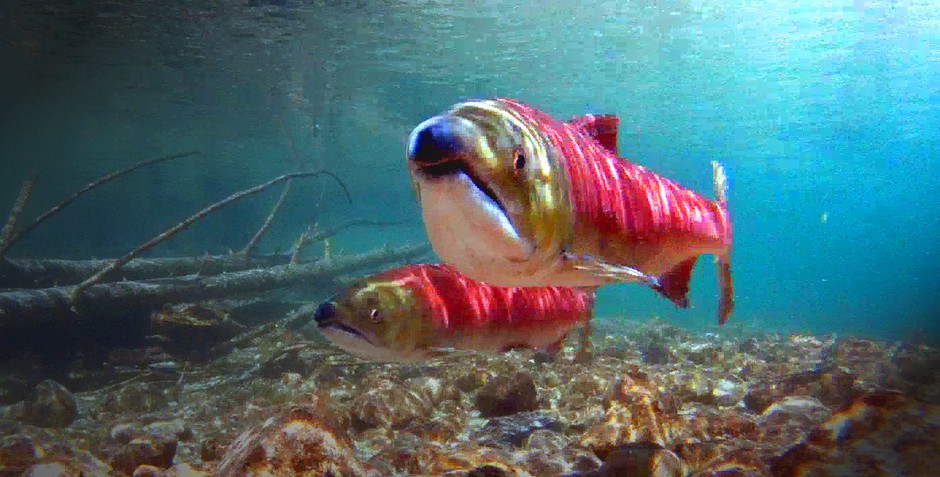
Tribal members gather to demand U.S. Government fulfill treaty obligations
Listen
(Runtime 2:57)
Read
For Northwest tribes, removing the four lower Snake River dams means more than just saving salmon, more than just saving the orcas that rely on salmon for food. More than 15 tribes joined together in Tulalip, Wash., this week to demand the federal government uphold their treaty obligations.
Throughout two days of emotional panels and testimony at the Rise Up Northwest in Unity Convening conference, tribal members asked everyone to pay attention — to science and traditional knowledge, to their leaders and most of all, to the salmon.
“We gotta be careful with our English, right? We have a mindset that we need to save salmon and we need to save the orca. From what? Look in the mirror. We need to save ourselves,” said Jay Julius, of the Lummi Nation.
He said the norm in policymaking needs to change.
“Protecting like it’s our giver of life, not a lack of political will to do what is right but won’t get us votes,” he said on a panel of male tribal leaders.
Fellow panelist JoDe Goudy, of the Yakama Nation, said the political policies harken back to policies like the Doctrine of Christian Discovery, which he said were backbones of, “false religious pretenses and lies” that now govern policies with tribes.
“We are looking at extinction and the extermination of our salmon,” Goudy said. “I’m not going to just stand by with my brothers and my sisters and say we’re just going to accept it. We’re going to have to start telling the truth and live within that truth and understand who we wish to be within that truth and work our way to a better future.”
Biologists say removing the four dams on the Lower Snake River could give salmon there a fighting chance. Still, they say, a lot more would need to be done.
To remove the dams, politicians, like Washington Gov. Jay Inslee and U.S. Sen. Patty Murray, say there need to be solutions for the services the dams provide, like carbon-free electricity, irrigation and transportation of things like wheat.
Alyssa Macy, of the Confederated Tribes of the Warms Springs, said there are solutions, if people are willing to work at them. She spoke during the panel of women tribal leaders, which moderator Kayeloni Scott called “salmon queens.”
“We are each other’s relatives, and it’s going to take hard work and with that in mind, we need to be kind and loving toward one another,” Macy said.
Also on the panel, Kim Hartwig, of the Nez Perce Tribe, said salmon are connected to the whole well-being of a person – physical and spiritual. Hartwig is the Nimiipuu Health Medical Director.
“Our ways of life and living offer much greater healing than an insulin injection or a pill that I can give and I truly feel that that’s where we need to go to heal our communities in Indian Country,” Hartwig said.
Many will remember an emotional moment at the conference, which spoke to more than just the trauma of losing salmon. During the Tribal Women panel, several speakers acknowledged other traumas, from childhood sexual assault to cancer diagnoses. After they finished speaking, four male tribal leaders sang a prayer for the women, moving many in the room to tears.
All of the women imparted a sense of hope for young activists who will pick up the fight. Youth speaker Free Borsley, of the Lummi Nation, noted how salmon declined after colonization.
“Really if we want to see a better tomorrow, we have to re-Indigenize everything around us, every part of us as individuals,” Borsley said during a youth panel.
That healing work includes tribal and nontribal people, and it benefits everyone, said Fawn Sharp, of the Quinault Indian Nation.
“We have to maintain hope, we have to work together, we have to rise above all that’s happening and we have to find that place where that eternal light is shining on our future,” Sharp said.
The work ahead, she said, is enormous, but not impossible.















